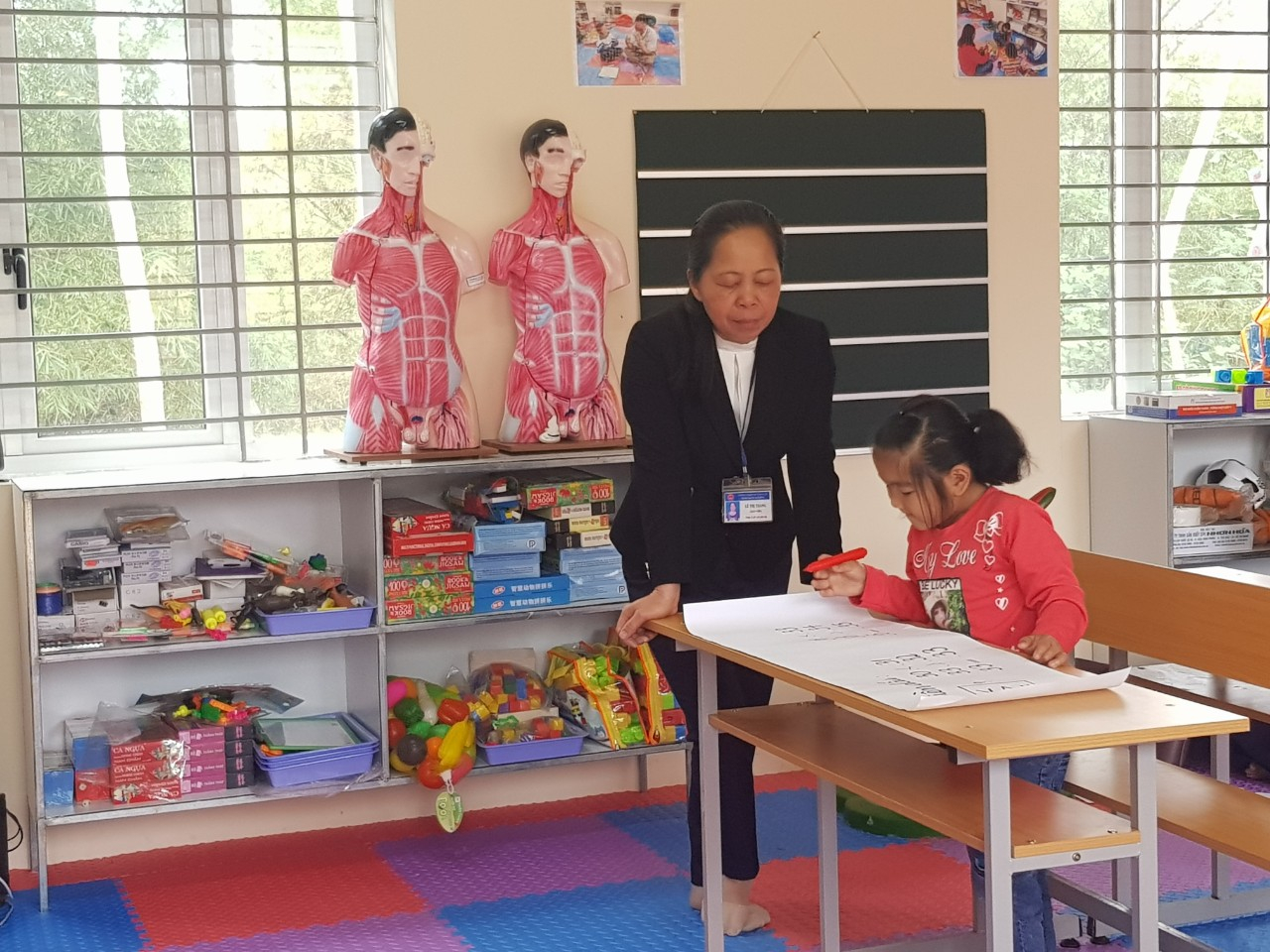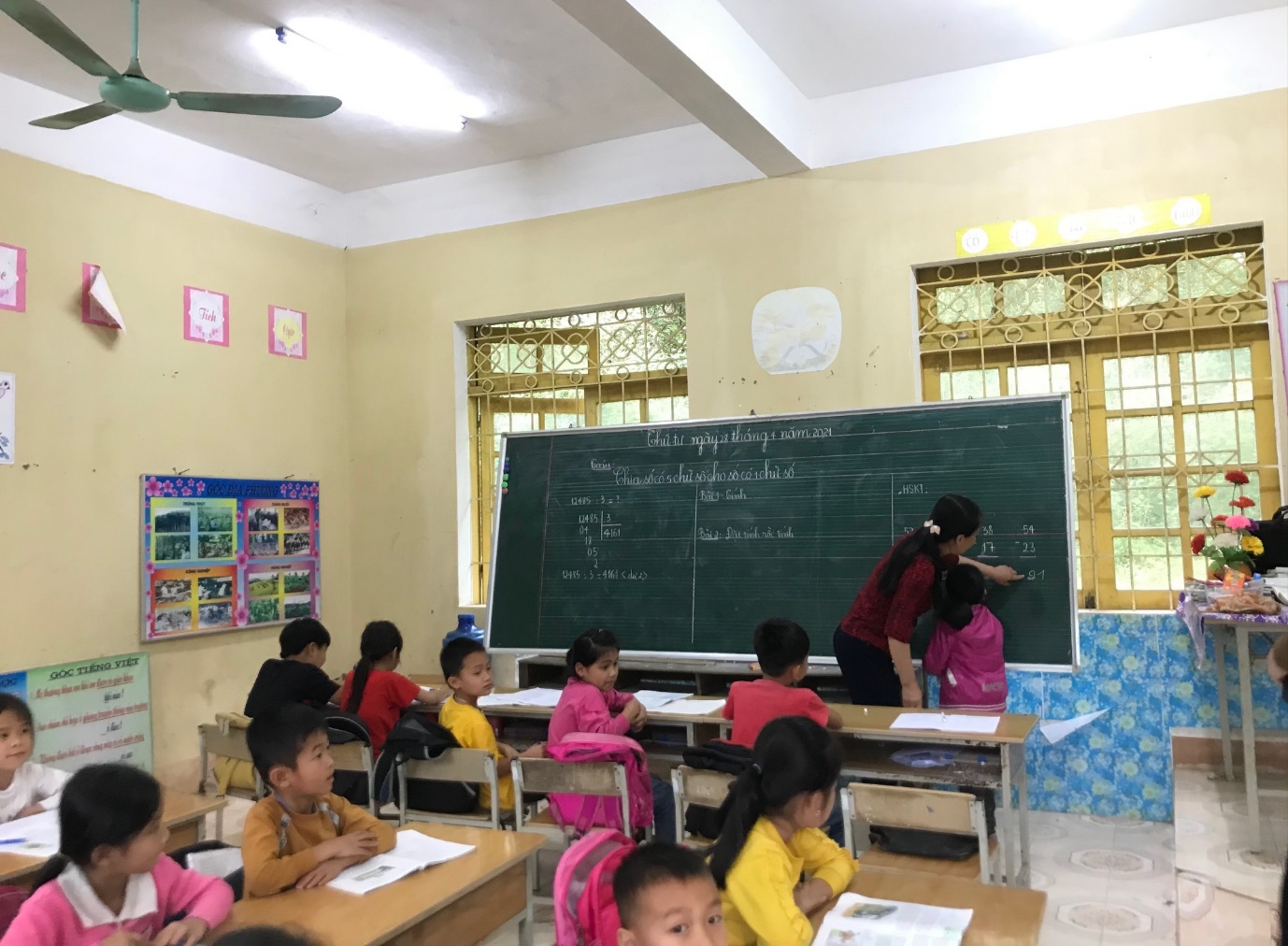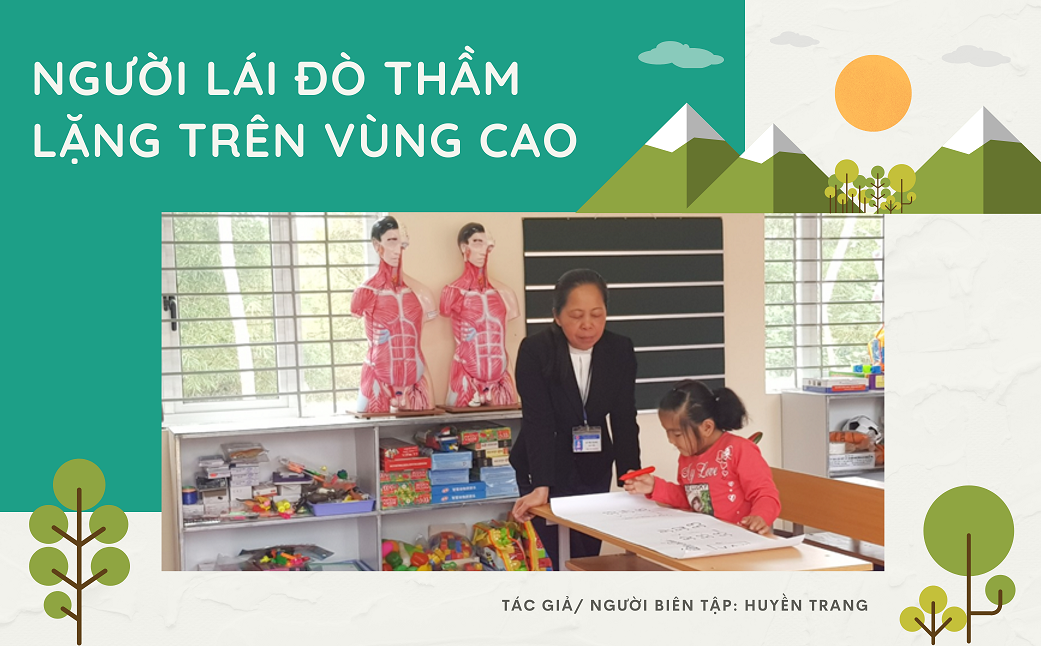William Ralph Inge[1] once said, “Nobody is bored when he is trying to make something that is beautiful, or to discover something that is true.” Perhaps that is also what Ms. Thang Thi Le, a teacher at Xuan Duong Primary and Secondary School, Na Ri District, Bac Kan Province, has always kept in mind for more than 30 years in her profession.
Having entered the teaching profession in the early 90s, Ms. Thang has been working continuously at Xuan Duong Primary & Secondary School since then. Around more than half of the teenagers in Xuan Duong Commune have been taught by her. Among them, there are “special” students that she would never forget: students with disabilities. As their “second mother”, Ms. Thang has always tried to support them in their studies and activities, as well as integration in the school and classes. However, teaching students with disabilities is not simple. In other words, she has encountered many difficulties because almost everything she did was instinctive and experiential, without any particular teaching methods for students with disabilities and suitable teaching equipment. Therefore, the lessons were not as effective as she expected. She said, “Sometimes I feel demotivated. Because I could only build general lesson plans for the whole class and there is no specific assignment for students with disabilities, they could not do it.”
In the 2020-2021 academic year, she was assigned to be the homeroom teacher of third and fourth grade classes, in which Van Anh Thi Nong is a student with intellectual disability. During the first days as a third grader, Van Anh rarely played with her classmates. When she talked to her teacher, she only made simple responses. In the class, Van Anh often lacked concentration. In particular, despite being a third grader, she had difficulties in calculating, could count up to 50 only and still could not recognize number 0. Every time she did addition and subtraction within 100, she had to count on her fingers and often made a lot of mistakes. Ms. Thang said, “Although I have had a lot of teaching experience, sometimes I still feel exhausted, because I have to ensure the effectiveness for the whole class while paying attention to Van Anh. I am very concerned about how to do both tasks well at the same time.”
In August 2020, Ms. Thang was sent to attend the first training course as part of a series of training courses on inclusive education for students with disabilities organized by the “Children’s Right to Study” project[2]. After the training course, she became better aware of the differences in educating students with disabilities and educating students without disabilities, and applied the knowledge from the training course to her teaching sessions.

Picture 1: Ms. Thang Thi Le instructed Van Anh to do addition within 60 in an individual intervention period at Inclusive Education Supporting Room at Xuan Duong Primary & Secondary School, Na Ri District, Bac Kan Province, on March 18, 2021. Taken by Trang Huyen Nguyen - ACDC Staff member
“At first, it was difficult for me to develop individual educational plans, but after being counselled by the project, I understood more clearly. I have broken down the goals and activities by month, not planning too far ahead because there will be adjustments according to the capacity of students with disabilities.” Now, Ms. Thang is confident in building individual educational plans for students with disabilities. Moreover, her lesson plans have shown harmony and reasonable time allocations for students with disabilities and other students in the classes. Understanding Van Anh's abilities and difficulties, Ms. Thang has adjusted her teaching methods and assigned exercises to her so that she would not feel “unemployed” in the class. “I know my students well, so it is very easy. Before receiving the training, I had not known anything, so I had still asked Van Anh to write correct letters as I had required other students to. Now, I have known how to adjust the lesson objectives for her. As long as she uses the correct spellings, she will meet the lesson requirements.”
Particularly, Ms. Thang always prepares necessary materials carefully and thoughtfully for the lessons and uses a variety of objects and pictures in Math lessons for Van Anh, making it easier for her to remember what she learns. Understanding the importance of teaching equipment, Ms. Thang spent time creating some simple educational tools by herself for the lessons. She also tutors good students in Van Anh's tutoring class, helping both Van Anh get along with her classmates and her classmates understand and share Van Anh's difficulties. When joining Van Anh's class, we felt a positive and friendly learning environment between the teacher and the students, between students with disabilities and students without disabilities.

Picture 2: Ms. Le Thi Thang instructed Van Anh to do addition in an inclusive class at Na Chang School, Xuan Duong Commune, Na Ri District, Bac Kan Province, on April 28, 2021. Taken by Hue Hong Nguyen - ACDC Staff member
The initial results are encouraging. Van Anh has become more cooperative and sociable with her teacher and friends. She can now read well, loudly, clearly, with intonation and correct punctuation. Ms. Thang excitedly said, “The other day, she wrote a paragraph describing Mr. Thong teaching English.” Van Anh has made remarkable progress in Math, she can do addition and subtraction within 60 and count from one to ten in English.
In order for more students with disabilities to experience appropriate educational methods, Ms. Thang hopes that she and other teachers will have opportunities to participate in many training courses on teaching methods and skills for each type of disability. She also hopes that schools will be supported with more suitable teaching tools for students with disabilities to enliven their lessons.
In order for inclusive education to be really effective and sustainable, the implementation needs to receive attention, be included in the Education sector’s guiding documents and specific plans, as well as be integrated into its briefings, monitoring, supervision and periodic reports.
It is difficult to describe the joy of Ms. Thang and her family when witnessing each change day by day. Even though the changes are small, they are proud of Van Anh. When we met Van Anh again one day in April 2021, she rushed out to greet us with a bright smile and talked like a little bird. Her joy is also a testament to the efforts of Ms. Thang - “the quiet ferry woman” in the highlands of Na Ri, Bac Kan.
[1] William Ralph Inge is an English author, born in 1860. He is also an Anglican priest, Theology professor at Cambridge University, and the rector of St. Paul's Cathedral. He was nominated for the Nobel Prize in Literature three times.
[2] The “Children’s Right to Study” project funded by the Australian Government (ANCP) through ChildFund Vietnam, has been implemented in Quang Uyen District, Cao Bang Province and Na Ri District, Bac Kan Province from 2019 to 2022.





0 comments
More comments